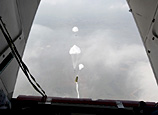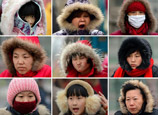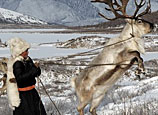
HONG KONG, Dec. 20 (Xinhua) -- Changes in the way people inhabit the planet have placed unprecedented pressure on the volatile microbial world, and as a result, many new diseases are emerging at an alarming pace, with animal diseases posing one of the biggest challenges to human health, Margaret Chan, Director- General of the World Health Organization (WHO) said here on Thursday.
Addressing a luncheon held by the Asia Society Hong Kong Center, Chan said more than 30 new diseases emerged to cause diseases in humans in the last three decades, and more than 70 percent of them came from the animal sector.
She said when animal diseases infect the human species to cause diseases in people, it is crucial to ensure the ability for the health sector and the agriculture sector to work well together, making sure the interface is well handled.
"SARS virus came from animals, and bird flu came from poultry. It is important to look at the environment, the culture practice, and the human-animal interface, and make sure the ecosystem balance is properly managed," she said.
Chan also said changes like unprecedented population density, the industrialization of food production, people living almost nose to nose with domestic animals, the eating of bush meat, and the phenomenal increases in international travel, are very difficult trends to reverse.
She said there will definitely be more new diseases capable of causing outbreaks in humans, but not all new diseases will be devastating. "The WHO and her partners are watching closely, and will very quickly deploy strong global capacity to respond."
Chan said the disease intelligence and information provided to the WHO in a timely manner, the rapid deployment of experts for investigation and the laboratory capacity to test for unusual virus are three important factors to fight against new diseases.
In terms of giving suggestions, Chan said on an individual base, when people do not feel well, they need to seek early medical treatment and do not travel, while on a community bases, the government has a duty to put in place early detection of problems and response to that.
"You do need personal, local, regional and global networks to prevent new disease and minimize the impact," she said.
Chan was appointed Director-General of the WHO in 2006, and was re-appointed for a second term until 2017. Prior to that, she once served as Director for nine years for the Director of Health of the Hong Kong Special Administrative Region government, during which, she handled outbreaks of avian influenza and SARS.














 Ordinary happiness makes us believe in love again
Ordinary happiness makes us believe in love again


![]()
